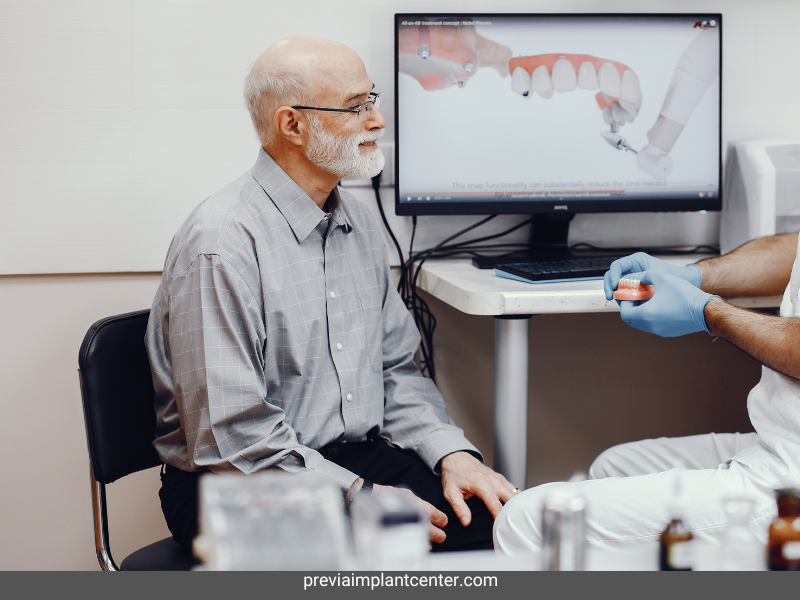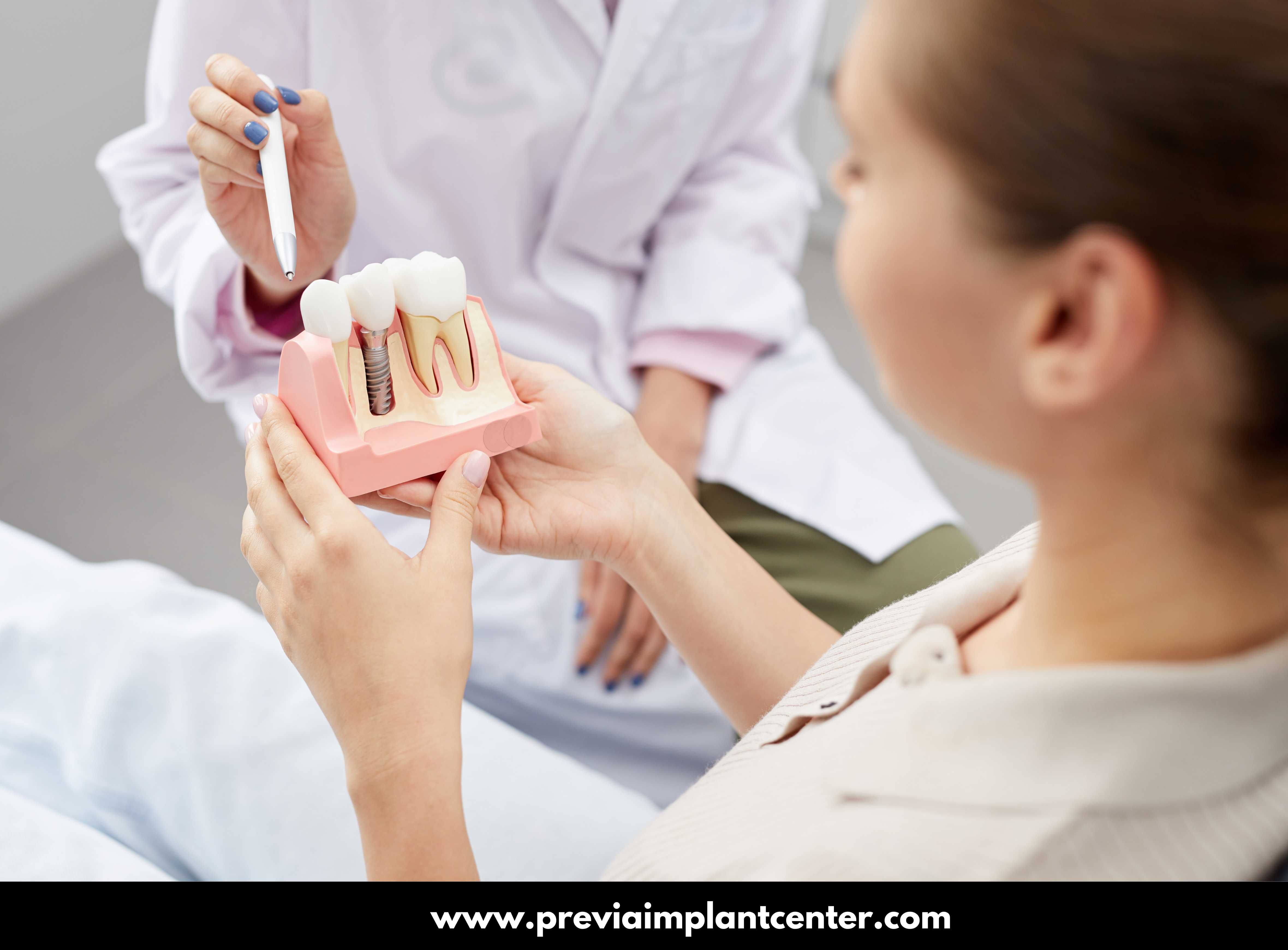
In this blog, we will explore how to identify dental implant rejection, the accompanying signs, preventative measures and possible solutions should it occur.
Dental implants in Tijuana are an increasingly popular and effective option for replacing missing or damaged teeth, restoring a patient’s confidence and oral functionality. Although the success rate is usually high, occasionally rejection can occur.
If you still need to know more about dental implants, we recommend this blog: EVERYTHING YOU NEED TO KNOW ABOUT DENTAL IMPLANTS.
How to recognize the rejection of dental implants?

Detecting the symptoms of implant rejection is critical to ensure long-term oral health. Some common signs include:
- Persistent pain or swelling around the implant area: Pay attention to any unusual discomfort that persists beyond the initial stages of recovery.
- Implant mobility: A successful dental implant should fuse solidly with the bone, providing a stable base for the artificial tooth. Consultation with an implant specialist is essential if implant instability or movement is detected.
- Bleeding or discharge: Detection of bleeding or pus discharge around the dental implant may indicate infection, a possible cause of rejection. These symptoms should be evaluated immediately by an implant dentistry professional in Tijuana.
During what period can dental implant rejection occur? And how to prevent it

The exact period in which dental implant rejection can occur varies depending on the individual and various factors. Generally, it tends to manifest itself in the first few months after the procedure. It is crucial to note that rejection of dental implants is rare, as the success rate usually exceeds 95%.
Although rejection prevention cannot be 100% guaranteed, steps can be taken to reduce the risk. Some tips include:
- Choosing a qualified professional: Opt for a dentist or dental implant specialist with adequate experience and training to ensure accurate implant placement and minimize the chances of rejection.
- Maintaining good oral health: Taking proper care of teeth and gums is essential to avoid post-implant complications. Regular brushing, at least twice a day, flossing, and regular visits to the dentist are recommended.
- Avoid harmful habits: Smoking and excessive alcohol consumption can increase the risk of dental implant rejection.
What to do in case of implant rejection?

In situations of dental implant rejection, there are solutions available to address the situation. Dental treatment options in Tijuana can vary, but some possibilities include:
- Removal of the implant: In some cases, it is necessary to remove the compromised dental implant to prevent further complications.
- Treatment of implant infection: If rejection is associated with an infection, antibiotics may be prescribed. It is essential to follow the directions of the specialist dentist in Tijuana and complete the full course of antibiotics.
- Implant Replacement: Once the site has healed adequately, the option of replacing the dental implant can be considered.
Although rejection of dental implants is rare, being informed about symptoms, preventive measures and dental solutions is essential. Maintaining good oral health, choosing professionals who specialize in implant dentistry in Tijuana and following care recommendations can significantly reduce the risk of dental implant rejection.
If you have any symptoms of dental implant rejection, you can schedule an appointment at Previa Implant Center, specialists in dental implants in Tijuana Dental at an affordable price by clicking here for an accurate diagnosis and proper treatment.

